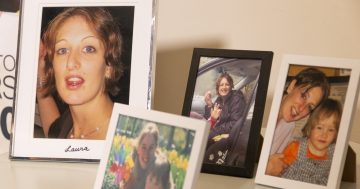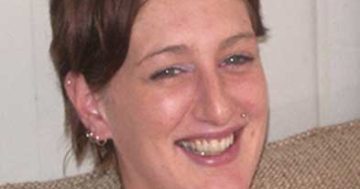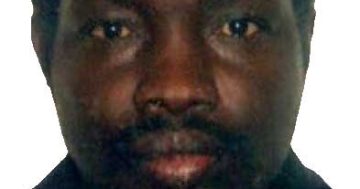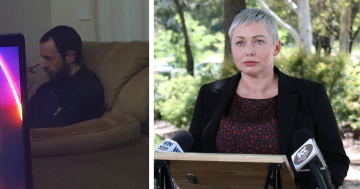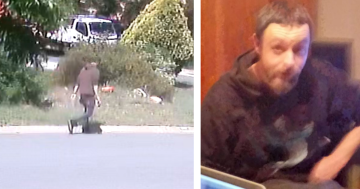
Beth Cassilles has again made a public appeal for information about her daughter, Laura Haworth, 12 years after she went missing. Photos: Dominic Giannini.
Laura Haworth told her friends she was going to work, left her friend’s house in Queanbeyan on Saturday, 5 January 2008, and was never heard or seen from again.
Two weeks later, the 23-year-old’s car – a red Mazda 121 – was found parked in a Kanangra Court car park at a block of units where she was known to have friends, but ACT Policing inquiries in the area were unable to locate her.
Speaking about her daughter for National Missing Persons Week was just as hard and emotional for her mother, Beth Cassilles, 12 years later as it was when she was first reported missing.
“It is difficult for us to fathom that we have not seen my daughter Laura for 12-and-a-half years – we all miss her deeply every day,” an emotional Ms Cassilles said.
“Laura had two children aged two and three when she disappeared. These kids had not yet started pre-school when she disappeared and are now in Years 10 and 11.
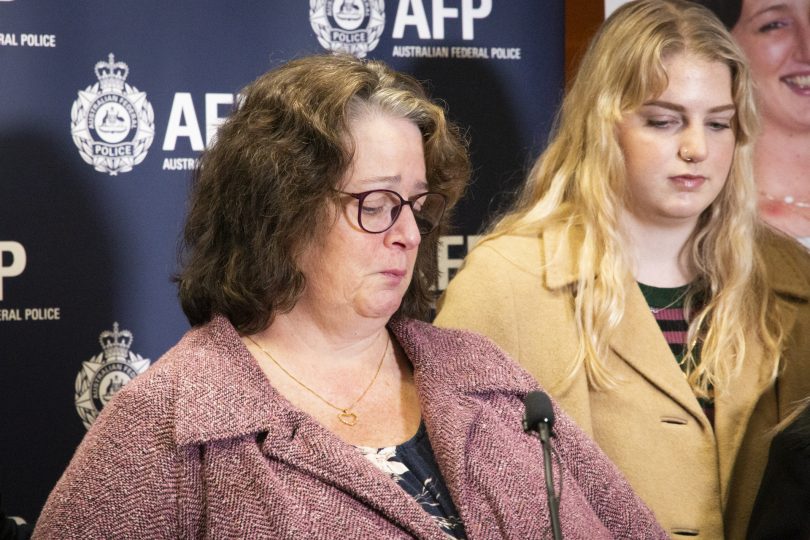
Speaking out about her missing daughter, Laura Haworth, for National Missing Persons Week was just as hard and emotional for her mother, Beth Cassilles, twelve years later.
“They have grown up wondering where their mother is, and what happened to her, but we do not know. The effects on her loved ones have been immense, ongoing and unrelenting.”
Only occasionally does Beth have the strength to look at portraits and photos of Laura.
“Not a day goes by where that we do not wonder where she is, what has become of her, is she OK and will she come home,” she said.
“At the beginning, when Laura first went missing is was a state of shock and crisis like when your child goes missing in the shopping centre and there is that panic. It was like that at the beginning and then the shock and pain do not go away, it just embeds in your life and it is there the whole time.
“I am certainly used to living with it but not in a good way. There are always emotions there all year, but times like this [media campaigns] it is much worse.”
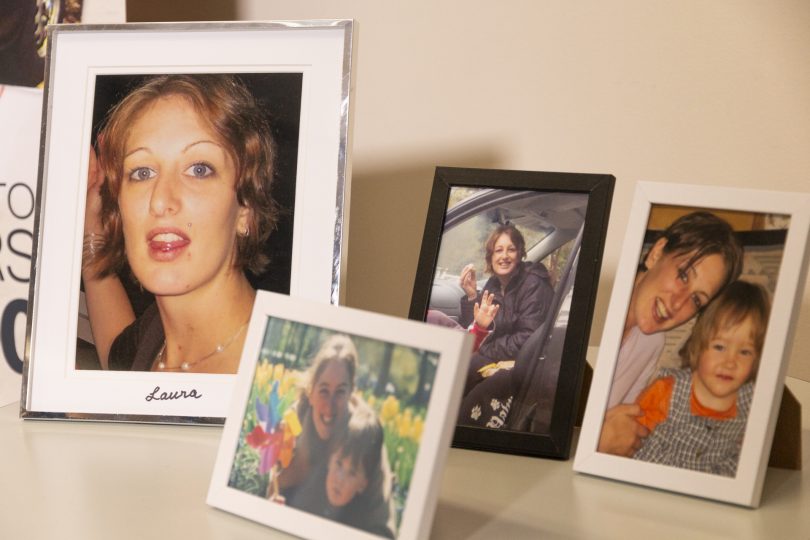
Laura Haworth went missing more than 12 years ago.
Laura’s situation and the experiences of her family are not unique. The ACT has 14 long-term missing people (more than three months), including two people who are missing overseas.
This number jumps to more than 2600 long-term missing persons nationally.
“I speculate good and bad, and the bad ones are particularly dreadful, and the good ones are helpful to get through some times – I am always hopeful,” Ms Cassilles said.
“There have been some more leads and police are doing the best to follow them up, but they are particularly under-resourced.”
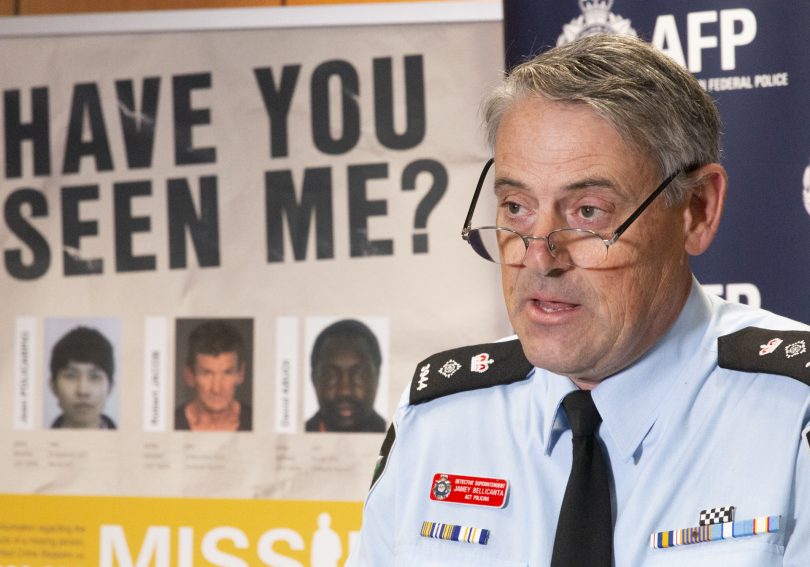
Detective Superintendent Jamey Bellicanta says ACT Policing is trying to reach as many people as possible during National Missing Persons Week. Photo: Dominic Giannini.
Detective Superintendent Jamey Bellicanta says while resources may be stretched, police continue to search for all missings persons and do need the public’s assistance to find answers for family and friends about what happened to their loved ones.
“I want to stress to families of missing persons that their loved ones are not forgotten, but sadly in the mire of ongoing investigations and contemporary investigations, on occasions, we perhaps are not placing the amount of resources and effort that needs to be placed into each of these individual cases,” Superintendent Bellicanta said.
“They are all individually challenging investigations, and as time goes on the opportunity to seek additional information is reduced; however advances in technology have provided investigators with updated DNA and personal information that have initiated further avenues of inquiry.
“We are trying to reach as many people as possible in the hope that someone, somewhere remembers something.”
People who have already contacted Crime Stoppers or ACT Policing about Laura, or another long-term case, are being urged to come forward again, Superintendent Bellicanta said. This is because there can be a vital piece of information uncovered during a call, or in some cases, people who contacted police years ago did not leave any personal details, meaning officers were unable to follow up on the information provided.
If you have information about a missing person, contact Crime Stoppers on 1800 333 000, or via the Crime Stoppers ACT website. Information can be provided anonymously.












